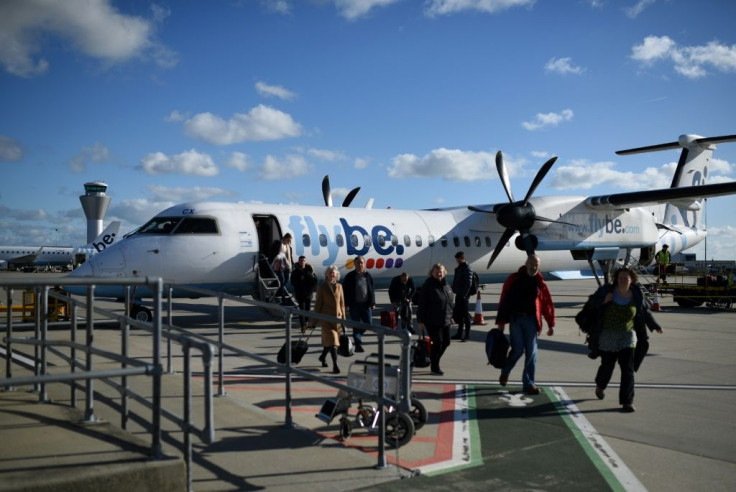UK Airline Flybe Collapses As Virus Hits Flights Worldwide

One of Britain's biggest airlines, Flybe, collapsed Thursday with all its flights grounded, the company said, as the coronavirus epidemic takes a heavy toll on airlines around the world.
A statement on Flybe's website said the company had entered administration and could not arrange alternative flights for its passengers.
"All flights have been grounded and the UK business has ceased trading with immediate effect," said the airline, which avoided going bust in January only after being granted a tax holiday by the UK government.
Flybe, which employs 2,000 people, had failed to turn around its fortunes since being purchased by the Connect Airways consortium last year, initially owing to weak demand and fierce competition.
That has now been compounded by the coronavirus, with a slew of airlines cancelling flights and warning profits would take a hit from decreased demand.
The announcement came hours after British media reported that the airline could collapse following its failure to secure a ?100 million ($129 million, 115 million euros) state loan to help stabilise the business.
The COVID-19 virus' impact on travel "has made a bad situation much worse", sources told the BBC, while Bloomberg News reported Thursday that no agreement could be reached on a virus-related bailout.
Small British airlines have suffered recently from volatile fuel costs and a weak pound.
Flybe is the biggest operator of UK domestic flights. The no-frills airline carries around eight million passengers annually and flies from 43 airports across Europe and 28 in Britain.
Its owner, the Connect Airways consortium, is led by Virgin Atlantic and also includes investment firm Cyrus and infrastructure specialist Stobart.
Following Flybe's tax deferral earlier this year, rival companies including British Airways-parent IAG complained to the European Union that it was receiving unfair state aid.
The government has said its assistance does not breach EU rules and that help is based on the importance of the company's domestic services and regional economic reliance on them.
However, that contrasted with the fate of British holiday giant Thomas Cook, which collapsed without government assistance last September, causing the loss of 22,000 jobs worldwide and stranding 600,000 holidaymakers abroad.
© Copyright AFP 2024. All rights reserved.





















